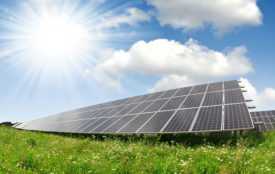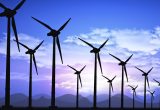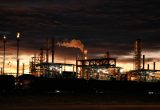Late Decarbonizers Face Mounting Economic Risks
Ambitious efforts to advance the clean-energy transition are not only good for the climate, but also pay off economically. According to a new study by the IASS, late decarbonizers are likely to face increasing risks to economic stability and industrial competitiveness. Furthermore, uneven decarbonization between countries could foster international tensions in coming years.
IASS researchers Laima Eicke and Andreas Goldthau examined international divergence in the pace of decarbonization. In particular, they sought to identify the most important risks and opportunities faced by countries in relation to their progress in adopting renewable energy. To this end, they queried leading international experts in the energy and financial sectors, soliciting opportunity and risk assessments within the scope of detailed interviews.
Progress is paramount: Late decarbonizers face higher risks
The study focused in part on international divergence in the pace of decarbonization. Beyond political ambition, countries differ significantly in terms of their access to technology and investment capital. As a result, 95 percent of installed renewables capacity is located in just 16 percent of global countries, particularly in highly developed nations. However, emerging and developing countries are experiencing the strongest growth in energy demand, and are still heavily reliant on fossil fuels. Such countries often lack access to investment capital for renewable energy projects, and also have worse access to renewables technology.
“The divide between early and late decarbonizers threatens to become exacerbated in the coming years, with early movers in renewables R&D and production accruing clear economic benefits, in part in terms of job creation,” explains Laima Eicke. “Late decarbonizers, by contrast, face significantly higher transformation risks over the coming ten years, including potentially lower industrial competitiveness and a higher risk of economic instability.” According to the study’s findings, countries whose economies are heavily dependent on fossil fuels risk incurring significant disadvantages, as industry experts now see fossil-fuel technologies and infrastructure as stranded assets with no long-term prospects for profitability.
According to the study’s authors, delayed decarbonization can trigger reinforcing negative feedbacks that make it increasingly difficult to catch up. In particular, late decarbonizers could suffer from worsening access to financial capital in addition to barriers to international trade.
Emerging and developing countries require additional support
“Uneven transition patterns can exacerbate existing tensions in international climate negotiations while also triggering trade conflicts,” Andreas Goldthau explains. Accordingly, policymakers should devote due attention to the political and economic dimensions of decarbonization, Laima Eicke asserts. “Governments should work to create policy conditions that encourage decarbonization, particularly by increasing international climate finance and technology transfer.” In this connection, the study’s authors note that additional research is needed to better understand the restrictions countries face in accessing renewable energy technologies. To this end, they are already working on country-specific case studies.








